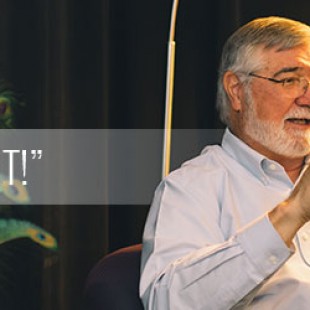Five Languages of Appreciation in the Workplace -Training

Owners and Managers’ Five Greatest Concerns (pain points)
Discouragement
Burnout
Feeling Overwhelmed
Losing the positive culture built over the years
Encouraging employees with few financial resources available
Why do employees leave?
89% of managers believe employees leave for more money, while 11% of managers believe
employees leave for other reasons.
Fact: Only 12% of employees leave for financial reasons,
88% leave for reasons other than money.
Gallup poll reports that almost 70% of the people in the United States say they receive no
praise or recognition in the workplace.
Let, The 5 Languages of Appreciation Work For You.
This is one of the least expensive and fastest ways I recommend to turn a company around culturally into a caring customer focused organization. What other options do you have at your disposal today?
Craig Winger, at Spectrum Coaching, is a certified facilitator of training for the Five Languages of Appreciation in Workplace.
Why learn the Five Languages?
Appreciating others is an attitude of life; a lubricant similar to gratitude and respect.
Learning to appreciate others in languages that you are not personally aware, shows that you care. You are already comfortable with your two, therefore, you only need to become aware and comfortable with the three unfamiliar preferences of others.
Words of Affirmation
Words, both oral and written, can be used to affirm and encourage those around us. Some people prefer personal one-on-one communication, while others value being praised in front of others (but it is important to know that relatively few people like to receive public affirmation in front of a large group.)
Quality Time
Personal, focused time and attention with their supervisor is highly affirming for some. But others
enjoy different types of time — “hanging out” with their coworkers, working together as a team on a
project, or just having someone take the time to listen to them. And the type of time desired can
differ significantly depending on whether it is with colleagues or with their supervisor.
- Quality Conversation
- Managers often mistake a desire for quality time as an effort to “get in good” with the boss.
- Employees feel this is their way to feel connected to the larger purpose of the organization.
- Quality time is giving someone your undivided attention.
- Quality conversation is creating a safe environment where one can share accomplishments, frustrations and suggestions.
Tangible Gifts
Diminishing in todays world. Why?
Prevalence of meaningless, token gifts
Often the “things” desired are very expensive.
Difficulty finding the suitable gift for a person in a language to make it meaningful for the recipient
Acts of Service
Aspects:
Don’t tell me you care; show me
Serving others; a lost character in our culture
Not related to position or authority
Helping in a situation where it is not your responsibility to help
Appropriate Physical Touch
Is there a place for physical touch in the workplace?
Appropriate physical touches are a fundamental aspect of human behavior. Research shows that babies that are held, hugged and touched tenderly develop a healthier emotional life than those that go long periods of time without physical contact.
We must learn from those that we are touching what he or she perceives as an affirming touch.
What is your Primary Language? You might be surprised.
We challenge every business owner and manager experiencing any one of the Five Greatest Concerns at the beginning to do a self assessment of their own languages and then adopt a practice of employee appreciation befitting a quality company. You can order the books and do a group book study and take the Motivation By Appreciation Inventory, on line. Or if you would prefer, Spectrum Coaching is certified to facilitate training of the five Languages and can assist owners and leadership to incorporate this practice into the company culture and the employee talent development program.
Five Languages of Appreciation in the Workplace
by Dr. Paul White and Dr. Gary Chapman




